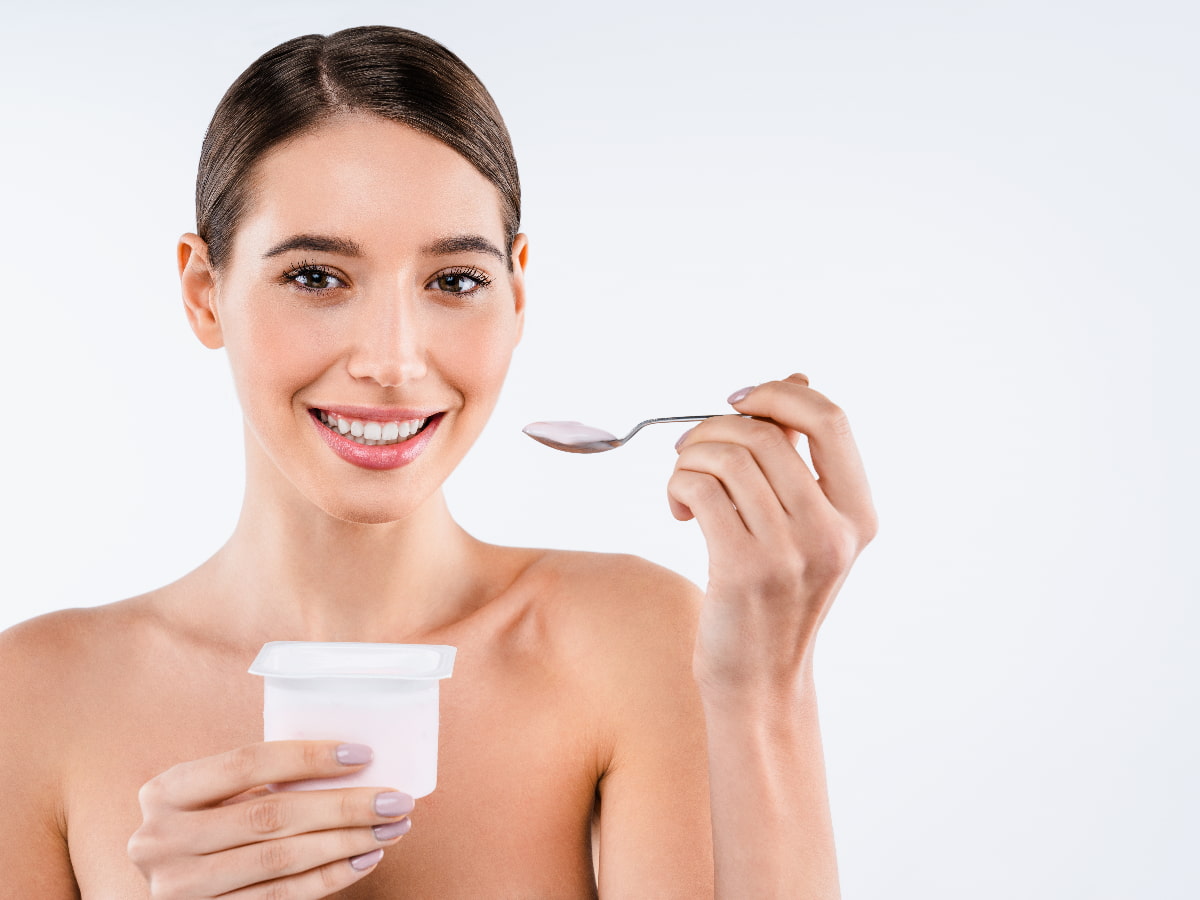The health of our skin is shaped by a myriad of factors such as genetic inheritance, our daily habits, and notably, our diet. While the benefits of topical skincare regimens are widely acknowledged, the importance of our dietary choices cannot be overstated. A key dietary factor influencing skin condition is the presence of food intolerances. By recognizing and addressing these intolerances, one can naturally bolster their skin's health.
This article aims to shed light on how food intolerances relate to skin health, pinpoint common dietary triggers affecting the skin, elucidate how these intolerances precipitate skin issues, examine dietary's role in skin care, discuss targeted diets for skin enhancement, and unveil the benefits of probiotics, nutritional supplements, and tailored eating plans for skin betterment.
Link Between Food Intolerances and Skin Wellness

Food intolerances arise when our body's immune system adversely reacts to certain foods, causing less severe symptoms than food allergies, which may lead to anaphylaxis. These reactions often present as digestive discomfort, headaches, fatigue, and notably, skin disturbances.
The immune system's response to offending foods plays a vital role, as it can amplify inflammatory processes, thereby aggravating skin conditions like dermatitis, eczema, and urticaria. Hence, understanding and managing food intolerances is vital for not only overall well-being but also for sustaining skin vitality.
Identifying Prevalent Food Intolerances Affecting the Skin
Unraveling the food intolerances that detrimentally affect our skin is a critical step towards enhancing skin health. Among the known dietary culprits are:
- Gluten Sensitivity: Often linked with celiac disease, gluten sensitivity can manifest as eczema. Symptoms include itchy, reddened, and inflamed skin following the intake of gluten-rich grains such as wheat, barley, and rye.
- Dairy Intolerance: Symptoms of atopic dermatitis can be exacerbated by dairy intake. people with this condition have reported improvements in inflammation and skin irritation upon eliminating dairy from their diets.
- Soy Sensitivity: Soy allergies might provoke skin reactions like hives, itching, and eczema outbreaks. Steering clear of soy products can mitigate these symptoms.
- Shellfish Sensitivity: Reactions to shellfish, including hives and swelling, highlight the necessity of pinpointing and avoiding specific shellfish to prevent skin adversities.
- Unique Food Sensitivities: Beyond the aforementioned, unique intolerances (e.g., nickel allergy found in certain foods like chocolate, peanuts, and some fruits and vegetables) can lead to eczema outbreaks. Identifying these through elimination diets or allergy tests is beneficial for skin care.
Mechanisms Behind Food Intolerances and Skin Issues
The immune system's response to intolerant foods, perceived as threats, can trigger allergic reactions manifesting variously on the skin, such as inflammation, dermatitis, and eczema. Intolerant food consumption can incite an immune reaction, causing bodily and skin inflammation, which may result in redness, swelling, and itching.
Moreover, food intolerances can prompt excessive histamine release, leading to vascular dilation and skin symptoms like redness, itching, and hives. Additionally, direct dermatitis triggers from food intolerances showcase the immune system's influence on skin inflammation and irritation.
Comprehending these mechanisms is foundational for identifying and managing food intolerances, facilitating the avoidance of specific dietary triggers, and ultimately enhancing skin health through reduced inflammation, histamine reaction, and dermatitis symptoms.
The Role of Diet in Managing Skin Health

Significance of a Nutritious Diet for Skin Vitality: A nutritious, well-rounded diet is essential for sustaining healthy skin. The intake of diverse vitamins, minerals, and antioxidants fortifies the immune system and mitigates the risk of skin ailments.
Dietary Choices Beneficial for Skin Vitality: Omega-3 fatty acid-rich foods like mackerel and sardines are instrumental in diminishing inflammation and enhancing skin vitality. Including a mix of fruits, vegetables, and beneficial fats in the diet can have a positive effect on conditions such as heart disease and celiac disease.
Significance of a Nutritious Diet for Skin Vitality
The consumption of foods high in omega-3 fatty acids is advantageous for skin repair and vitality. Vitamin C-rich citrus fruits bolster skin repair. Foods laden with antioxidants, like green tea, are beneficial for skin vitality. Whole grains are vital in upholding skin health, while probiotics from supplements or natural sources improve gut health, significantly affecting skin's look and health.
Dietary Choices Beneficial for Skin Vitality
Incorporating diet with omega-3 rich fish oil fosters skin health and curtails inflammation, reinforcing the immune response. Almonds, abundant in vitamin E, support skin health and mitigate allergic reactions. Olive oil consumption promotes skin flexibility and heart health. Vitamin D, from sunlight or supplements, is favorable for skin health, aiding in preventing food allergy symptoms. Strawberries offer potent antioxidant protection for the skin, bolstering the immune system and digestion.
Foods to Avoid for Enhanced Skin Health
For improved skin health, eliminating gluten may benefit conditions like eczema and dermatitis. Avoiding dairy may help manage atopic dermatitis and eczema. Limiting processed food intake can reduce skin inflammation. Avoiding known dietary triggers can prevent allergic reactions and food intolerances, potentially easing skin congestion and hives by excluding specific allergens.
Special Diets for Enhanced Skin Health

Understanding and managing food intolerances is key to boosting skin health. Identifying and avoiding common dietary irritants allows for a customized diet plan targeting specific skin issues. Special diets, including anti-inflammatory, Mediterranean, and gluten-free diets, are crucial for enhancing skin health. These diets aid in managing conditions like dyshidrotic eczema and promote overall body health, including immune and heart health. A diet rich in mackerel, sardines, and margarine benefits skin by supporting digestion and reducing allergy risks.
Anti-Inflammatory Diet for Skin Health
Eating foods high in quercetin can ease inflammation associated with food intolerances, enhancing skin health. Probiotic supplements improve gut health and diminish skin inflammation. Including brown rice in an anti-inflammatory diet benefits the skin. Natural remedies such as green tea may reduce skin inflammation, while avocados' healthy fats support an anti-inflammatory diet for skin health.
Mediterranean Diet: Benefits and Limitations for Skin Health
The Mediterranean diet, rich in healthy fats, aids skin health, with fruit and vegetable consumption improving overall skin condition. The diet's emphasis on whole grains also supports healthy skin. However, it may not directly tackle food intolerance-related skin issues, though its healthy fats from fish are beneficial for skin health.
Gluten-Free Diet: Its Effectiveness for Skin Health
Studies indicate that a gluten-free diet may improve skin health for those with eczema by reducing inflammation and lessening eczema symptoms. However, individual responses to gluten vary, and not all eczema sufferers will see benefits from a gluten-free diet.
Addressing Specific Skin Conditions Through Diet
Customizing your diet can alleviate symptoms of specific skin conditions like eczema and rosacea. For dyshidrotic eczema, avoiding nickel-rich foods such as mackerel and sardines is recommended. Avoiding spicy foods and hot drinks can prevent rosacea flare-ups. Omega-3 fatty acids from fish and heart-healthy margarine may reduce inflammation linked to skin conditions.
Diet Plan for Eczema Management

An anti-inflammatory diet is key for managing eczema, with elimination diets useful for identifying triggers. Including probiotic-rich foods helps manage symptoms. Emphasizing foods rich in healthy fats, vitamins, and minerals is crucial for those with eczema.
Dietary Strategies for Rosacea Management
Dietary modifications can effectively manage rosacea symptoms. Avoiding known triggers can reduce flare-ups, while an antioxidant-rich diet may benefit people with rosacea. Identifying and managing food sensitivities is essential for diet-based rosacea management, with probiotics potentially aiding symptom control.
Harnessing the Benefits of Probiotics for Dermatological Health
The integral role of probiotics in skin wellness is underscored by their ability to harmonize the immune function and bolster digestion health, which in turn, aids in controlling food allergy manifestations. The American College of Allergy, Asthma, and Immunology highlights that probiotics might mitigate the risk of skin maladies such as eczema. The inclusion of foods rich in probiotics, such as yogurt, kefir, and fermented veggies, in one’s eating plan stands out as an effective strategy to foster gut and skin health. The adoption of a probiotic-enriched diet may lead to noticeable enhancements in conditions like dyshidrotic eczema and acne.
Probiotics: The What, Why, and How
Probiotics, vital for dermatological health, are beneficial live microorganisms that, when ingested, exert positive effects, particularly on the gut-skin connection. Grasping the mechanisms of probiotics and integrating them into one's diet can significantly uplift the skin’s health.
Top Probiotic Foods for Radiant Skin

For radiant skin, it’s crucial to weave probiotic-dense foods into one’s nutritional regime. Yogurt stands as a potent probiotic source, enhancing skin quality. Kimchi and sauerkraut, both products of fermentation, serve as excellent probiotic providers for skin vitality. Kefir, a fermented milk drink, along with tempeh, a fermented soy product, are replete with probiotics that favor skin health. Incorporating these dietary elements can sustain a glowing, healthy skin surface, underpinning overall dermatological well-being.
Role of Dietary Supplements in Skin Vitality
Appropriate dietary supplements are instrumental in fostering skin vitality. Essential nutrients bolster the immune system and aid digestion, while Omega-3 and Omega-6 fatty acids, prevalent in fish like mackerel and sardines, are key in inflammation control and heart health enhancement. It is vital to seek medical advice before supplementing, especially with existing food allergies or celiac disease. A balanced diet remains paramount for optimal skin and general health.
Vital Nutrients for Dermatological Wellness
Maintaining skin wellness necessitates crucial vitamins and minerals. Vitamins C, E, and D are foundational for skin upkeep, with Omega-3 fatty acids being indispensable. Zinc, along with vitamin C’s role in collagen production and vitamin E’s protective function against cellular damage, are essential. These nutrients influence immune health, heart disease, a balanced diet, digestion, and asthma. An intake of foods rich in these essentials is the most effective measure to secure skin health and avert various dermatological issues.
Importance of Omega-3 and Omega-6 for Dermatological Health
A balanced intake of Omega-3 and Omega-6 fatty acids is key to dermatological health. Omega-3s offer anti-inflammatory properties, bolstering the immune system and aiding in heart disease prevention.
Omega-6 fats are crucial for skin maintenance and respiratory health. Eating foods rich in these fats promotes digestive health and lowers the risk of conditions like celiac disease, dyshidrotic eczema, and asthma, highlighting the need for a balanced Omega fatty acid diet for skin preservation.
Personalized Diet Plan for Dermatological Wellness
Creating a tailored diet plan for skin wellness involves identifying dietary triggers and possibly adopting an elimination diet to pinpoint intolerances, with professional allergy testing as a backup.
Integrating whole grains, healthy fats, and probiotics can foster gut health and overall well-being. Natural supplements such as green tea and fish oil can also support skin vitality. Addressing dietary aspects and employing these strategies allows for a bespoke approach to enhance skin health from within.
Identifying Food-Related Skin Issues
To pinpoint food culprits behind skin issues, maintaining a food diary to track symptoms post-consumption is advised. Monitoring eczema flare-ups after certain foods and noting allergic reactions like hives or breathing difficulties can be insightful. Dermatologist consultations for eczema and exploring potential food intolerance signs like inflammation or congestion are recommended steps.
Frequently Asked Questions:
How do probiotics benefit skin health?
Probiotics support skin health by balancing the immune system and promoting healthy digestion. This balance can reduce inflammation and may lower the risk of skin conditions like eczema and acne. By improving gut health, probiotics indirectly affect skin clarity and overall health.
Can eating probiotic-rich foods improve my skin condition?
Yes, incorporating probiotic-rich foods such as yogurt, kefir, kimchi, sauerkraut, and tempeh into your diet can help improve your skin condition. These foods promote a healthy gut microbiome, which is linked to reduced inflammation and fewer skin issues like eczema and acne.
What skin conditions can probiotics help manage?

Probiotics may help manage and reduce the risk of several skin conditions, including eczema, acne, and dyshidrotic eczema. They work by enhancing the body's immune response and maintaining a balanced gut flora, which is essential for healthy skin.
Are there any side effects to using probiotics for skin health?
For most people, consuming probiotics through food is safe and without significant side effects. However, in rare cases or when taking high-dose probiotic supplements, some people may experience digestive discomfort. It's always recommended to consult a healthcare provider before starting any new supplement regimen.
How long does it take to see improvements in skin health after incorporating probiotics into my diet?
The time it takes to see improvements in skin health after incorporating probiotics into your diet can vary from person to person. Some may notice changes within a few weeks, while for others, it might take a few months to observe significant improvements. Consistency and a balanced diet are key factors in achieving and maintaining skin health benefits.
Conclusion
Skin care extends beyond topical treatments to include dietary management of food intolerances, significantly enhancing skin health naturally. Acknowledging the link between dietary habits and skin conditions enables informed nutritional choices for skin support. A balanced diet, enriched with skin-beneficial foods and avoidance of triggers, visibly betters skin appearance and health.
Exploring specific diets like anti-inflammatory, Mediterranean, or gluten-free diets may boost skin condition. The significance of probiotics, essential vitamins, minerals, and Omega fatty acids in skin health cannot be overstated. Personalized dietary planning, catering to individual needs, yields the best outcomes. Embrace dietary mindfulness for a naturally radiant complexion and overall skin health.
Whether you suspect food intolerance is causing your skin issues or you are simply interested in understanding this connection, confirming is the first step in understanding the mysteries of food intolerance and its impact on skin health. You can do so using Advance Food Intolerance Labs (AFIL)’s at-home gluten intolerance tests.
Watch AFIL test kits testimonial videos click here
References:
- Patriarca, Giampiero, et al. "Food allergy and food intolerance: diagnosis and treatment." Internal and emergency medicine 4 (2009): 11-24.
- Jun, Dae-Won, et al. "Food intolerance and skin prick test in treated and untreated irritable bowel syndrome." World Journal of Gastroenterology: WJG 12.15 (2006): 2382.
- Ortolani, Claudio, and Elide A. Pastorello. "Food allergies and food intolerances." Best Practice & Research Clinical Gastroenterology 20.3 (2006): 467-483.
- Schäfer, T., et al. "Epidemiology of food allergy/food intolerance in adults: associations with other manifestations of atopy." Allergy 56.12 (2001): 1172-1179.
Wüthrich, B. "Food‐induced cutaneous adverse reactions." Allergy 53 (1998): 131-135.


.png?v=1737390083)
.png?v=1737187409)


